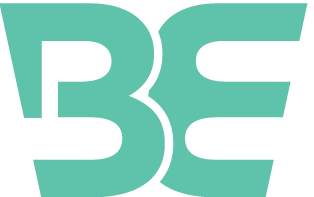If you’ve spent much time publishing on the internet, you may have run across something called a creative commons license. Some websites, such as DeviantArt, will automatically ask whether you want to publish with a creative commons license when you publish a work. So what is a creative commons license and how does it benefit you?

What is a Creative Commons License?
Creative commons licenses allow your work to be shared and indicate what kind of attributions you, as the creator, request others to use. Additionally, they’re simple to use even without any knowledge of coding. Just fill out a form on the Creative Commons website and it will give you the code stating how people are allowed to use your works and how to attribute them.
How to use a Creative Commons License
There are six types of creative commons licenses, each combining different features of licenses. The features indicate:
- Whether the work may be distributed commercially;
- Whether the work may be changed from its original form by users other than you;
- How future users of your work must license it and whether they must credit you.
Which type of license is best for you may depend on what type of work you’re creating, and of course, how you want it to be used. Open source software, for example, allows the code to be modified by future users to add or change the programming. If you’re a musician and you want others to be able to remix your work, you might also want a license that allows for change.
The Licenses
Attribution
CC BY
This license lets others distribute, remix, tweak, and build upon your work, even commercially, as long as they credit you for the original creation. This is the most accommodating of licenses offered. Recommended for maximum dissemination and use of licensed materials.
View License Deed | View Legal Code
Attribution-ShareAlike
CC BY-SA
This license lets others remix, tweak, and build upon your work even for commercial purposes, as long as they credit you and license their new creations under the identical terms. This license is often compared to “copyleft” free and open source software licenses. All new works based on yours will carry the same license, so any derivatives will also allow commercial use. This is the license used by Wikipedia, and is recommended for materials that would benefit from incorporating content from Wikipedia and similarly licensed projects.
View License Deed | View Legal Code
Attribution-NoDerivs
CC BY-ND
This license allows for redistribution, commercial and non-commercial, as long as it is passed along unchanged and in whole, with credit to you.
View License Deed | View Legal Code
Attribution-NonCommercial
CC BY-NC
This license lets others remix, tweak, and build upon your work non-commercially, and although their new works must also acknowledge you and be non-commercial, they don’t have to license their derivative works on the same terms.
View License Deed | View Legal Code
Attribution-NonCommercial-ShareAlike
CC BY-NC-SA
This license lets others remix, tweak, and build upon your work non-commercially, as long as they credit you and license their new creations under the identical terms.
View License Deed | View Legal Code
Attribution-NonCommercial-NoDerivs
CC BY-NC-ND
This license is the most restrictive of our six main licenses, only allowing others to download your works and share them with others as long as they credit you, but they can’t change them in any way or use them commercially.
Advantages for Brands, Artists, and Entertainers
The biggest advantage of using a creative commons license is distribution. By allowing your work to be shared under this license you’ll build your brand as your work spreads and is used with attribution. For a beginning artist, brand building and recognition is of utmost importance.
On the flip side, a creative commons license may be less advantageous to an established artist who may be seeking more financial benefit than brand building. However, the importance of good will to any business should not be overstated; the internet generation is used to having information and creative works at their fingertips, and they tend to appreciate the share and share alike attitude of a creative commons license.
WordPress Tip
If you or your web development team uses WordPress, I would highly recommend checking out WP Inject which lets you add photos to your WordPress posts. More importantly, WP Inject automatically creates the required attribution links next to your creative commons image saving you time so you can focus on branding yourself! By entering a keyword, you’ll have access to thousands of creative commons images to pick from. Give it a try!
Is a creative commons license right for you? If so, which one will most benefit your personal brand? Contact Us to discuss licensing your work.
Credits: Photo by karindalziel  and creativecommons.org
and creativecommons.org
